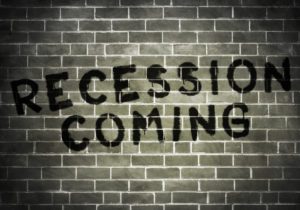With almost a half year of 2023 passed already, let’s take stock of the US financial situation to see whether Mr. Market knows more than the experts and whether the current positive returns can be sustainable through year end. It is usually quite dangerous when anyone opines, This time is different!
First, the positive factors:
- Stock prices are rising.
- Unemployment is low.
- Inflation rate is falling.
- The Fed is nearing the end of interest rate increases.
-
-
Following the proverb that financial markets will do whatever it takes to confound the majority of investors, all major stock indices have risen higher thus far than expected. Through last Friday, Bloomberg reports the S&P 500 up 12.8 percent, the NASDAQ Composite up 27 percent and the Dow Jones 30 up 3.26 percent. Not bad considering signs of recession.
Next, the negative factors:
- Interest rate yield curve is inverted.
- Leading economic indicators have fallen 13 months consecutively through April.
- Corporate profits levels are declining quickly.
- Real Gross Domestic Income has dropped for more than a year.
Each of the above negatives could warrant a full weekly column. Except for the yield curve—short term interest rates being much higher than long term rates—these are details not widely known or discussed in the press.
The Conference Board, founded in 1916, carefully tracks economic activity and issues its Leading Economic Indicators index (LEI) monthly. Its current 6 month rate of change looks to be about minus 9 percent. When it falls below 4, it strongly predicts a recession. See https://www.conference-board.org/topics/us-leading-indicators.
In our office, Aaron Pickert and I both expect a recession to occur. The operative questions are when and how deep it will be. This is why we are still led to be cautious in our investing right now. The good news is that short term cash can yield over 5 percent again, unlike the years of Zero Interest Rate Policy. (ZIRP)
Markets generally reflect opinions about future conditions at least 6 to 9 months ahead. Since a recession has not formally been recognized yet (two quarters of declining Gross Domestic Product), it may take another few months to be called.
Historically, remember that September has the statistics to prove it the most likely month of the year for stock market drops. Also, during the past bearish market of about 18 months, we have seen no cleansing so-called capitulation during which a great percentage of investors throw up and hands and cry, Sell!
If you are riding along with the big uptick in technology and consumer cyclical stocks, be careful and ready to take your profits. If or when the correcting drops in price begin, they can change even faster than they are rising now.
(Past performance is no guarantee of future results. The advice is general in nature and not intended for specific situations)

